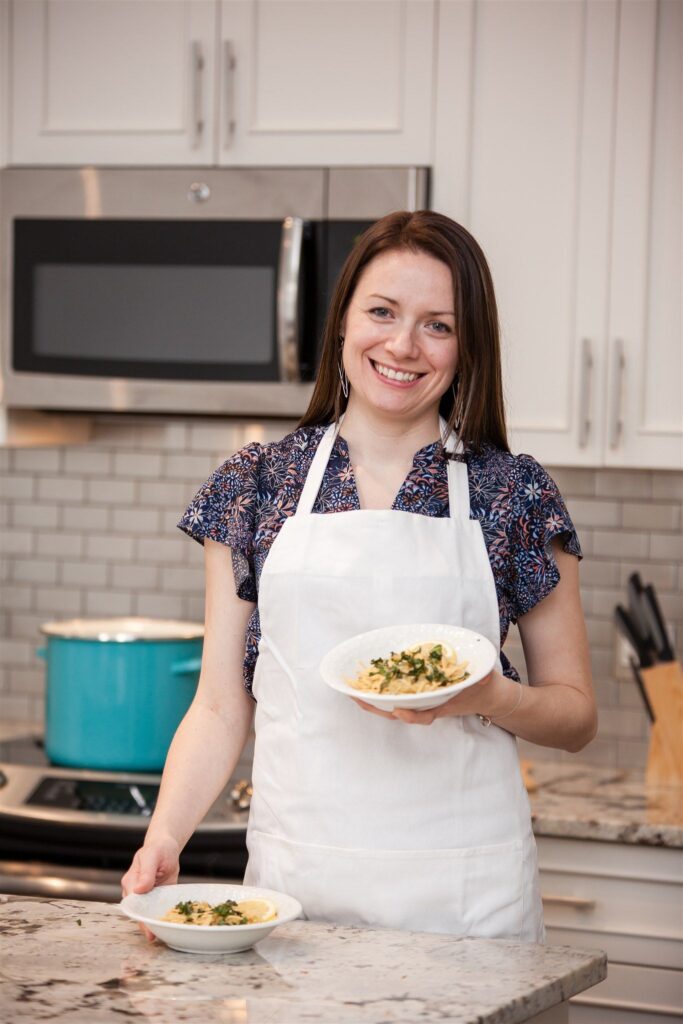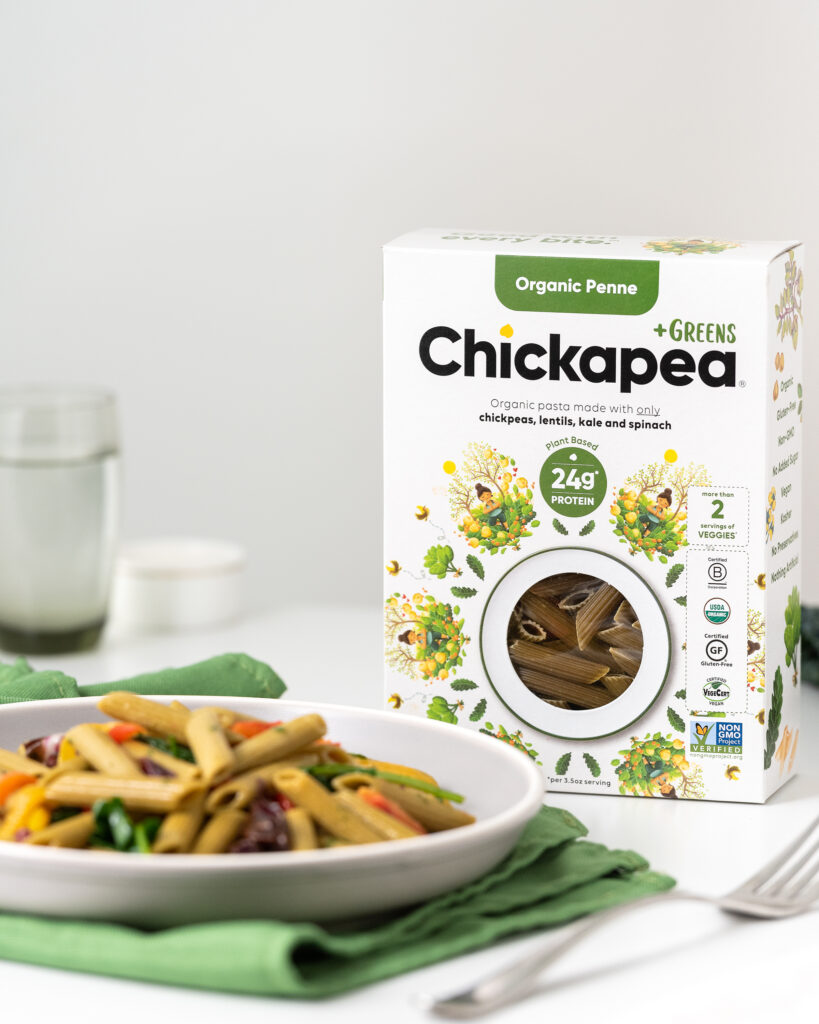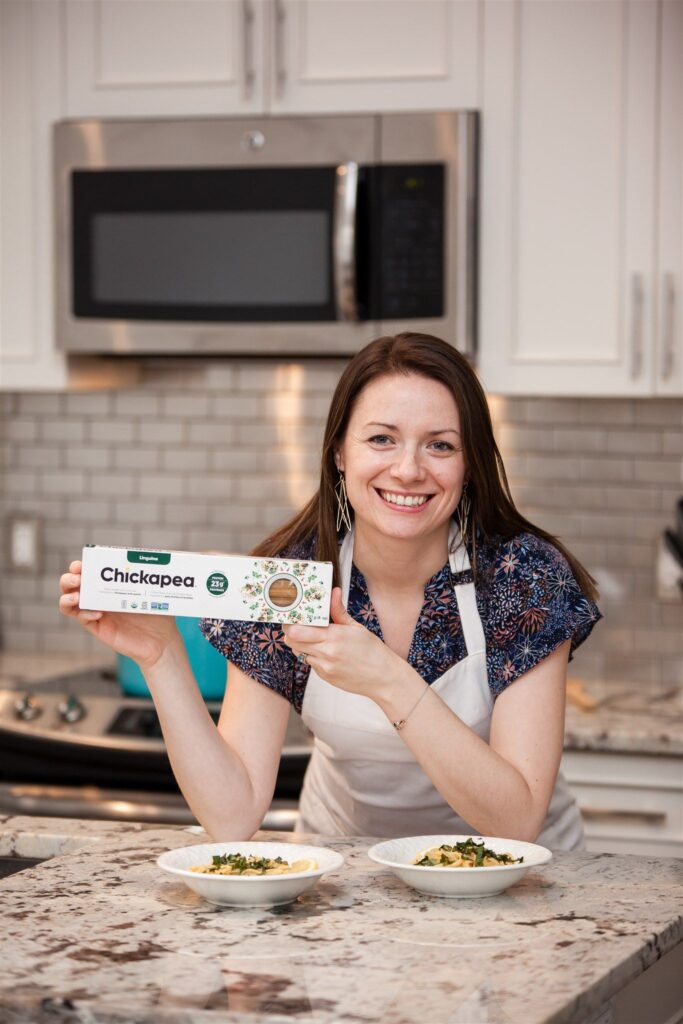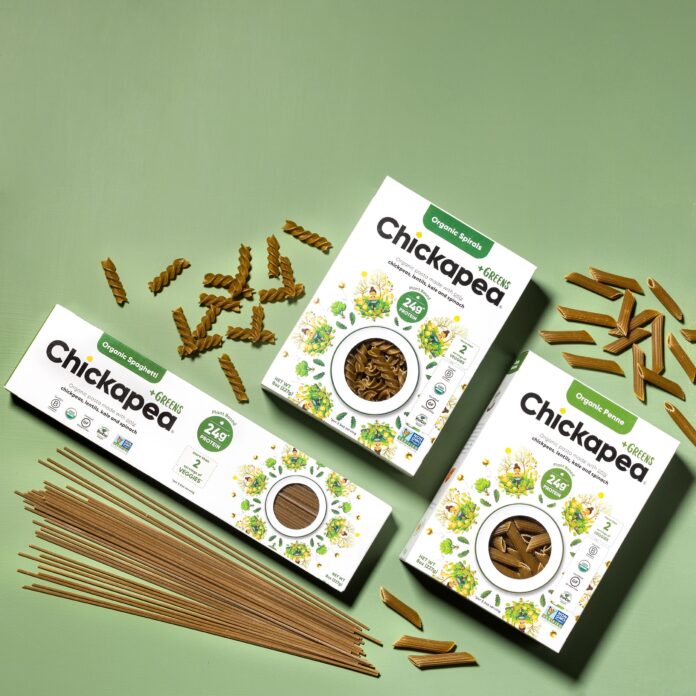( ENSPIRE Health & Wellness ) Chickapea Pasta Makes Makes Healthy and Sustainable Eating Easy for Families
ENSPIRE Contributor: Abby Ladner
Adopting a lifestyle of healthy and sustainable eating is difficult for anyone. For people with children, it can feel nearly impossible. That’s why Shelby Taylor started Chickapea, a line of healthy organic pasta made with only two things: chickpeas and lentils. Chickapea products are made with the health of the family and the health of the environment in mind. Through sustainable farming, their plant-based pasta helps eliminate soil and water contamination, preserve wildlife habitats, and reduce greenhouse gas emissions.
Chickapea is also giving back to their community through the company’s commitment to “social goodness.” In the past, Chickapea has donated to WE Charity’s School Nutrition Program with a focus on the village of Los Rios in Ecuador. Every year, Chickapea also donates several hundred pounds of their pasta to food banks across North America, helping even more people put nutritious food on their tables. Read the interview below with Chickapea founder Shelby Taylor to learn more about how they’re making a difference for families and the environment.

I’d love to hear more about your background. What did you do before starting Chickapea, and how did that lead you to where you are now?
I can’t say that I have a business background or that I come from an entrepreneurial family; I went to university for journalism and media studies with a passion for writing and telling stories, but I was always interested in nutrition and food. I worked as an associate editor with a homes magazine for a few years, and in that time my interest in food and nutrition grew to the point that I left journalism to pursue a career in it. I knew I wanted to start my own product line, but I became pregnant with my first child, and the idea of starting something from scratch seemed like a lot to take on. So, I bought a local health food store and ultimately used it for market research, discovering that people were really struggling to feed their families healthy meals that they would actually eat and enjoy. It was after interviewing customers and learning that pasta was a staple, but one that they didn’t feel was healthy, that the idea for Chickapea came about.
The task of turning pasta into a healthy, organic meal couldn’t have been easy. Could you tell me more about the process of developing the product?
You’re right, it was not a simple task at all, especially without any kind of background in food production or manufacturing. My mum and I rented a commercial kitchen that happened to have a restaurant-sized pasta extruder, and we bought a bunch of chickpea flour from the local Goodness Me. to make a prototype. I knew it was possible because of a local brand, Maria’s, that I had tested with customers, but I had no idea how challenging it would be to make the improvements I wanted to make. We took the prototype to a local co-packer that knew nothing about pasta but had the right certifications and some entrepreneurial spirit and agreed to co-invest in an extruder with us. It wasn’t long before we realized there was no way we could produce this high-protein, gluten-free pasta at any kind of scale. The chickpea flour would gum up the whole machine after 20 minutes.
I interviewed many pasta manufacturers in Canada that all seemed to share the same view that gluten-free pasta meant sacrificing taste and texture, and that’s just what the consumer expected. I couldn’t accept that, and, after a year or so, I was connected with a manufacturer in the U.S. that has the specialized equipment, and, after three or four months in trial with them, we had something worth selling. Since then, we have made many improvements and moved our production to Italy with a partner with far more experience and expertise, one that shares our passion for creating a product that satisfies that traditional pasta craving without sacrifice.

Why is Chickapea’s dedication to environmental responsibility so important to you?
For so many reasons, but the biggest one is because I have two children that deserve to live life and give life in a world with fresh air, clean water, nutrient-dense food, and without fear of that world giving way to climate change. What good is money if you’re destroying your own habitat while making it? I have a responsibility to this planet and our future generations, and this business is my best chance to make a positive impact.
I’d love to hear more about the charitable work you’ve done through Chickapea. Who are you helping, and why did you decide to incorporate that into the mission of Chickapea?
Chickapea is committed to donating 2% of all revenue (not just profit) to charity each year. We have focused our charitable work on supporting a core belief that everyone should have access to nutritious food. Between 2018 and the end of 2020 we donated three cents per package of Chickapea sold to WE Charity to support their school nutrition program, which saw an entire school in Los Rios, Ecuador fed healthy lunches each day, funded their school garden, and the construction of their school kitchen as well as provided education on sustainable agriculture to the entire community. Then we made up the balance of the 2% in product donations to food banks across North America.
Given what’s happened with WE, which is heartbreaking, to say the least, I have taken the time to think about the impact we want our dollars to have and have formed a new and exciting partnership with Community Food Centres Canada (CFCC) whose purpose is it to build health, belonging, and social justice in low-income communities through the power of food. Through this partnership, we are not only providing access to nutritious food but access to the most nutritious food for people and communities in need. The majority of our donation dollars now go to CCFC with the agreement that all funds are used to purchase fresh produce from a leading, organic regenerative farm, the New Farm near Creemore, ON. Organic regenerative farms not only produce the most nutrient-dense food but are our best chance of reversing climate change. I couldn’t be more excited to support this movement while also getting healthy food to those who need it most.

What are some of the biggest challenges you’ve faced while starting your company, and how did you get through those?
I never really know how to answer this question because the challenges are endless, but, now that we’re five years in, we realize this is just part of growing a business, and we handle the challenges more calmly and confidently than we did in the beginning.
Starting this business with no experience in business, manufacturing, investment, the food industry … Well, the learning curve was about as steep as it gets, and I was incredibly naive about everything—how much it would cost, how long it would take, how hard it would be, etc.—so I made tons of mistakes, and I still make mistakes, but I committed myself to learn this business inside and out, and what has ultimately got me through every major challenge is my belief in myself to figure it out. A big part of that has been building a strong, dynamic team I can learn from and count on.
Do you have any advice for other entrepreneurs who want to make a positive impact with their company?
Simply model it in. If you want to donate 2% of revenue, model it in just the way you do any other expense that’s not optional, and base your pricing from there. Knowing that you’re doing good with every sale makes growing your business much more exciting and cultivates a positive culture that attracts the right kind of people.
Because of Taylor and Chickapea, families can enjoy meals that taste like comfort food while being healthy and sustainable. Learn more about Chickapea on their website. Keep up with them on Instagram, Facebook, and Twitter.







